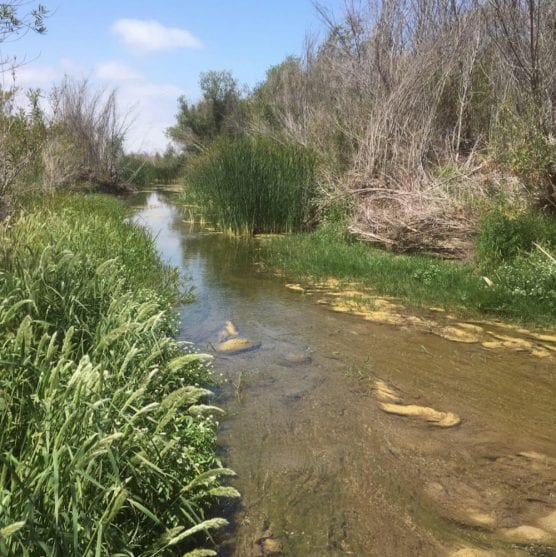State water regulators gave local sanitation officials three more years to carry out their plan to reduce the amount of chloride that ends up in the Santa Clara River.
On Thursday, officials with the Santa Clarita Valley Sanitation District met with members of the Los Angeles Regional Water Quality Control Board to learn if their request for more time was approved. It was.
“We are pleased to report that today the Regional Board adopted the time schedule order mentioned below, which provides additional time to complete the chloride-compliance project — until January 2022,” Sanitation District spokesman Bryan Langpap said in a written statement late Thursday afternoon.
In October 2014, the same district officials went before the same water regulators with a four-year plan to significantly reduce the amount of salty chloride discharged as treated water into the Santa Clara River watershed.
The Sanitation District, a Los Angeles County entity with two local representatives that is responsible for regulating local effluents, was mandated to reduce the amount of chloride, or salt, that discharges from SCV wastewater treatment plants into the Santa Clara River, largely due to concerns by downstream farmers that chloride was damaging salt-sensitive crops such as strawberries and avocados.
Back-to-back lawsuits filed against the district, challenging its assessment of the chloride compliance project’s impact on the environment, stalled construction.
District heads appealed to the regional board for more time.
On March 12, the Los Angeles Regional Water Quality Control Board issued a tentative time schedule order that would give sewer officials a three-year extension to complete its plans.
On Thursday, in Agoura Hills, the regional water board made it official.
Sewer officials were able to convince the board that lawsuits filed by a group of SCV ratepayers called the Affordable Clean Water Alliance stopped it from working on the plan. The group challenged the district’s assessment of the impacts the chloride plan would have on the environment.
“Our chloride-compliance project was delayed due to legal challenge,” Langpap said last month. “Because of the delay, we are not able to meet various compliance deadlines.”
News of the time extension was well-received at the district.
“The district is pleased with the regional board’s action today,” said Ray Tremblay, head of the district’s facilities planning.
In January, sewer officials agreed to pay an Irvine company $87.3 million to build a chloride-reducing plant.
They want OHL UA Inc. to build an advanced water treatment facility at the Valencia Water Reclamation Plant.
And, when officials talk of advanced water treatment, what they mean is extracting salty chloride from the water through reverse osmosis. The new facility is to be added to the existing water treatment plant on The Old Road at Rye Canyon Road.
Despite moving ahead, however, with the plan to reduce chloride content in treated water, the same sewer officials blamed lawsuits for killing their plans for recycled water.
In February, they announced they were scuttling recycled water plans because of the lawsuits.
The litigation by ACWA delayed compliance with the state-mandated chloride limit by two years and cost ratepayers an additional $5 million, Grace Robinson Hyde, the chief engineer and general manager of the SCV Sanitation District, said in February.
“And, to be very clear,” she said at the time, “all of the legal and resulting costs incurred to date, as well as those potentially incurred in (the) future, have been and will be borne by the ratepayers.”
Like this:
Like Loading...
Related





 Tweet This
Tweet This Facebook
Facebook Digg This
Digg This Bookmark
Bookmark Stumble
Stumble RSS
RSS


























REAL NAMES ONLY: All posters must use their real individual or business name. This applies equally to Twitter account holders who use a nickname.
0 Comments
You can be the first one to leave a comment.